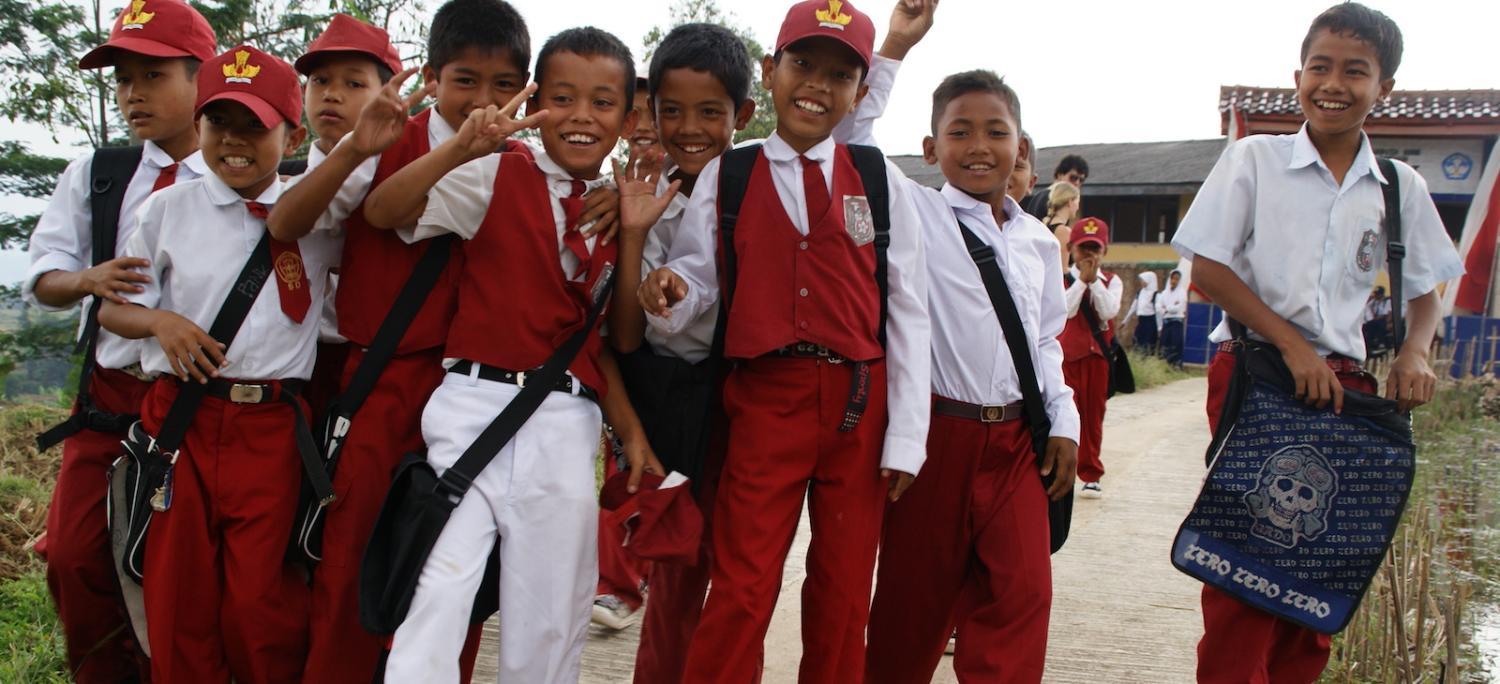Between Prabowo Subianto’s promise to “Make Indonesia Great Again” and Joko “Jokowi” Widodo’s warning that “winter is coming”, all eyes in Indonesia are transfixed on the upcoming presidential election.
Yet beyond the campaign trail, Jokowi’s pandering to the Indonesian armed forces has had a profound impact on Indonesia’s civil-military relations. On 18 September 2018, Jokowi issued Presidential Instruction Number 7 (Inpres 7), the “Bela Negara National Action Plan”. According to Defense Minister General (Ret.) Ryamizard Ryacudu, Bela Negara is intended to strengthen citizens’ patriotism while protecting Indonesia from harmful ideologies through policy, and Inpres 7 is “a bid to make Bela Negara (State Defence) program more systematic, structured, standardised, and massive”.
Inpres 7 is a major concession to the Tentara Nasional Indonesia (TNI) and the national security establishment, which has been clawing its way back into politics through participation in national food security, infrastructure construction, public safety, and disaster relief efforts.
Jokowi’s pandering to the Indonesian armed forces has had a profound impact on Indonesia’s civil-military relations.
Bela Negara became policy in October 2015 through the 2015 Defence White Paper, initially aiming to mobilise 4,500 “national defence cadres” comprised of civilian volunteers. Defense Minister Ryacudu was Indonesia’s most prolific public advocate for Bela Negara and helped elevate the program to the level of the National Resilience Council or Dewan Ketahanan Nasional (Wantannas), which is now given the job to implement the three-step Action Plan under Inpres 7.
According to Inpres 7, the first step of implementation is the “dissemination, harmonisation, synchronisation, coordination, and evaluation” of Bela Negara, which is broken down into twelve actions and bulleted standards of evaluation.
These actions include the creation of instructional modules for Bela Negara programs, organising national consultation meetings and conferences, designing curricula, forming coordination and evaluation bodies, and planning multi-tiered cadre training programs.
The second step is the “internalisation of Bela Negara’s Basic Values” through eight actions intended to internalise Bela Negara’s values among civil servants, military personnel, police officers, and the general public.
Success at this stage is defined by the implementation of curricula that inculcate an adequate understanding of the urgency of Bela Negara, and feelings of love of country, loyalty to Indonesia’s national philosophy Pancasila, and a willingness to sacrifice for the nation.
The third step is the “Action” movement, which is subdivided into non-military and military threats.
Non-military threats fall into the fields of demography, geography, environment, ideology, politics, economy, socio-cultural affairs, and technology. Within these fields are threats such as unchecked population growth, public health, natural disasters, agrarian conflict and resource exploitation, energy scarcity, and ideologies contrary to Pancasila (i.e. terrorism, radicalism, separatism, and communism). The section of military threats is limited to specific military threats such as horizontal conflicts, violations of territorial sovereignty, and the potential threat of foreign invasion/foreign aggression.
This illustrates how Inpres 7 is sprawling in its scope of issues it seeks to address, and shallow in its delegation of authority.
Although Inpres 7 does highlight some specific policy initiatives like reviving family planning initiatives to prevent demographic disparities, the vague and repetitive language of the document does more to obfuscate national priorities than clarify them. The only clear message of Inpres 7 is that Bela Negara is the key to Indonesia’s survival and prosperity and that the TNI holds this key.
While the TNI plays a leading role in in the action plan, regional governments and political parties also play their part.
From 15 to 19 October, 55 high school students led by their school principal in Magelang, Central Java completed Bela Negara training at a local military academy. Meanwhile in Purbalingga, also in Central Java, 540 youth, including the children of local representatives, completed Bela Negara instruction under the auspices of the regional government from 15 to 27 October. Similar training is being organised across the nation in Cikajang, Gowa, Denpasar, Palangka Raya, and elsewhere.
Even though Inpres 7 came and went without much public discussion, the implementation of the Bela Negara Action Plan will be sure to provoke debate in light of previous Bela Negara scandals. Among the most infamous scandals was the January 2017 discovery that TNI officers were providing military training for members of the “anti-vice” vigilante group Fron Pembela Islam (FPI) in Lebak, Banten.
Bela Negara programming is also controversially promoted as an antidote to “deviant” ideologies including LGBT lifestyles and communism; the Bela Negara action plan labels communism as a threat to the nation, while LGBT lifestyles are not mentioned by that acronym, but plausibly fall under the anti-Pancasila ideology of “hedonism”.
Jokowi’s embrace of nationalist rhetoric, choice of his conservative ulama running mate Maruf Amin, or “accidental” authoritarian politics may not reflect the president’s personal politics so much as a hedging strategy for the upcoming election.
Nevertheless, Jokowi has proven not to be the liberal reformer many had hoped for, allowing hard-earned reforms in democratic governance to backslide under his watch. By inviting the national security bureaucracy to play a more active role in government outside the normal role of the military in other countries, Jokowi is trading the norm of civilian-led governance in exchange for the survival of his administration.

